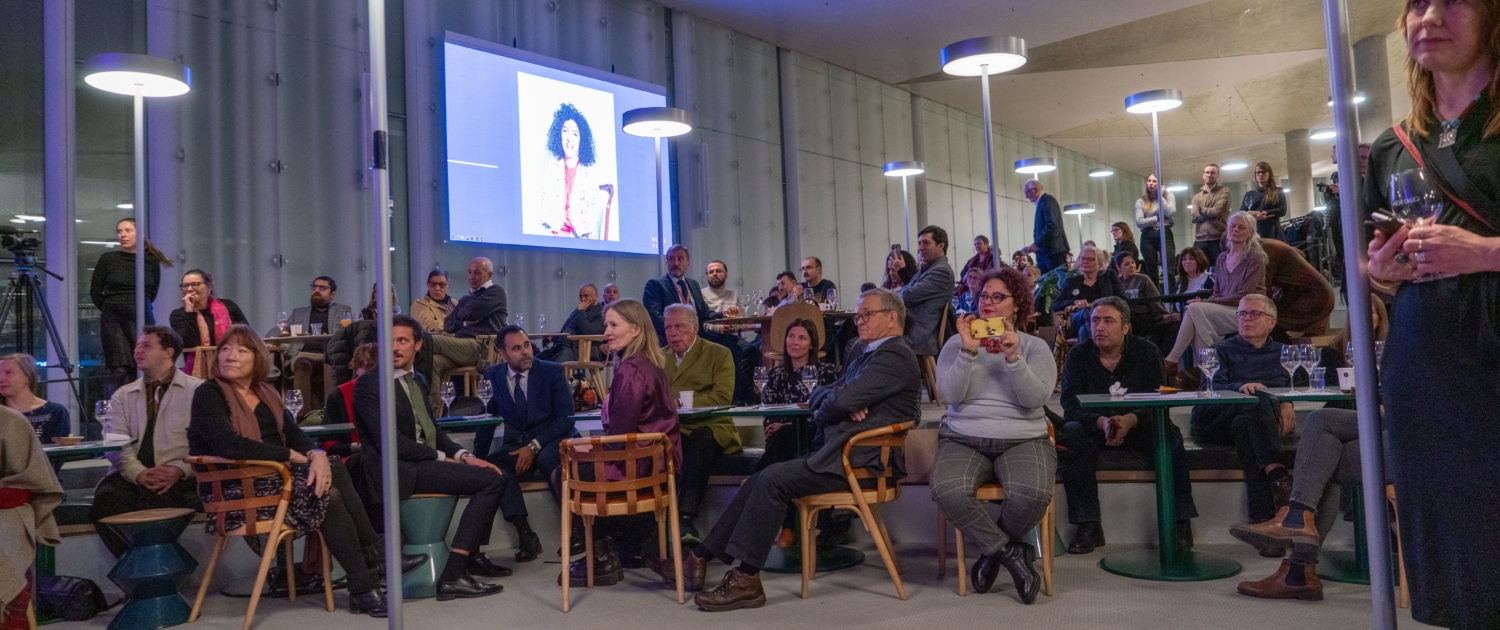Iranian Diaspora Celebrates Nobel Recognition for Jailed Women’s Rights Activist Narges Mohammadi
Restrictions on education and employment and the mandatory Hijab stand as a harsh reality for more than 40 million Iranian women today. Iranian authorities have intensified their crackdown on peaceful dissent and expression, employing intimidation, arrests, prosecutions, and trials against activists, artists, dissidents, lawyers, academics, and students in the aftermath of widespread protests that swept the country in 2022. Since then, Iran’s so-called morality police has become increasingly active, intensifying patrols to enforce the country’s strict Sharia law.
In Iran, the harsh Sharia system, driven by tough Islamic principles, extends its reach to dictate life, from personal conduct and family matters to criminal law and economic transactions. However, its implementation exhibits a stark disparity, greatly impacting the rights and freedoms of millions of women in what is considered one of the toughest countries in the world.
The Hijab, a long garment that covers a woman from head to toe, has been a contentious issue in Iran for many years. However, it regained renewed attention amidst a broader debate on women’s freedom following the tragic death of 22-year-old Mahsa Amini on September 16, 2022, at the hands of Iran’s morality police. Since then, discussions have intensified, accompanied by a growing public anger and dissent.
“In the face of rising dissent in Iran, the Islamic regime has resorted to shooting, disappearing, and blinding its own people, employing the full might of morality police with excessive force,” said Hamidreza Mohammadi, brother of the imprisoned Nobel Laureate Narges Mohammadi. Hamidreza speaks with a measured cadence, as if every word is carefully chosen, his thoughts unfolding slowly, revealing the weight of contemplation in each phrase.
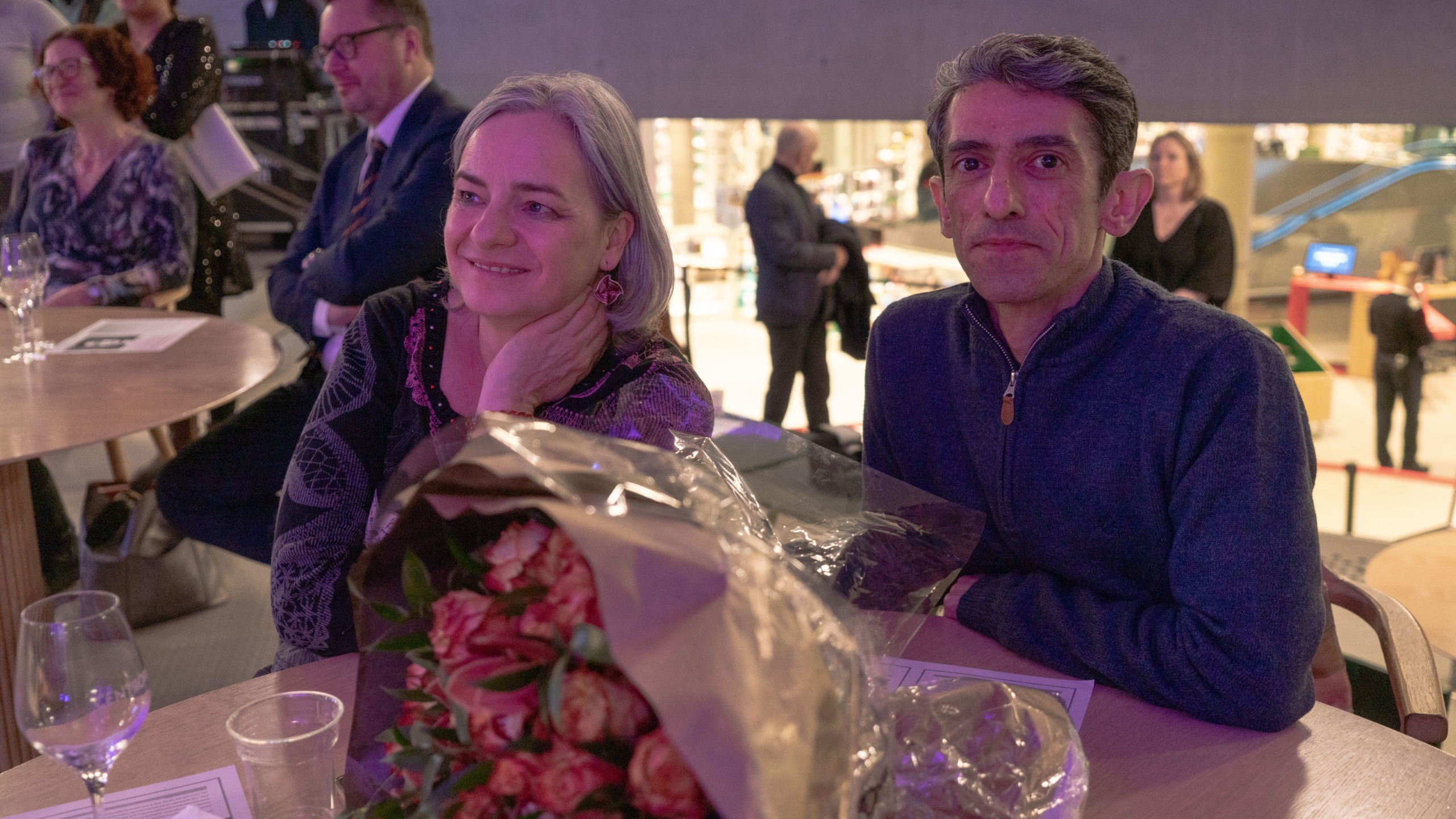
Hamidreza Mohammadi, brother of the imprisoned Nobel Laureate Narges Mohammadi
“The regime is so desperate. Yet, in its desperation, it has failed to extinguish the resilient spirit of the Iranian people.”
Mohammadi, invited by Norsk Pen on Thursday, December 7, attended a closed reception at Deichman Bjørvika with the Nobel Prize winner’s family and other selected guests. The other selected guests included artists, journalists, writers, and musicians. The gathering transformed Deichman Bjørvika into a mini Tehran hall where everyone passionately discussed women’s rights, music, art, culture, and press freedom in their mother language, Farsi. What defined that day at Deichman Bjørvika was the freedom with which Iranians expressed their thoughts—an unbridled luxury not enjoyed in Tehran.
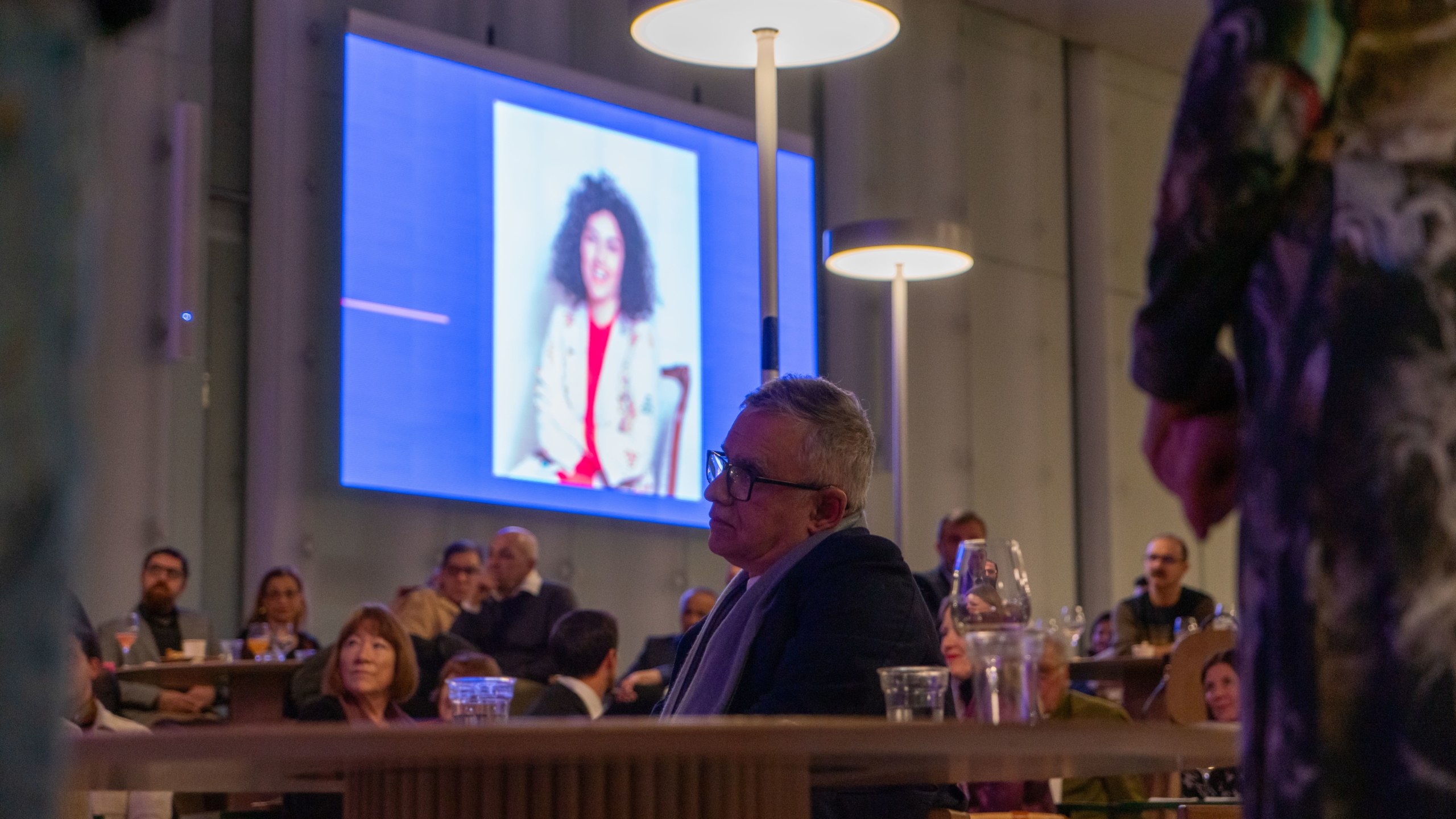
Even Masud Gharahkhani, an Iranian-Norwegian politician and President of the Storting (Norwegian Parliament), acknowledged, “If my parents had not escaped Iran, my life would have been different today.”
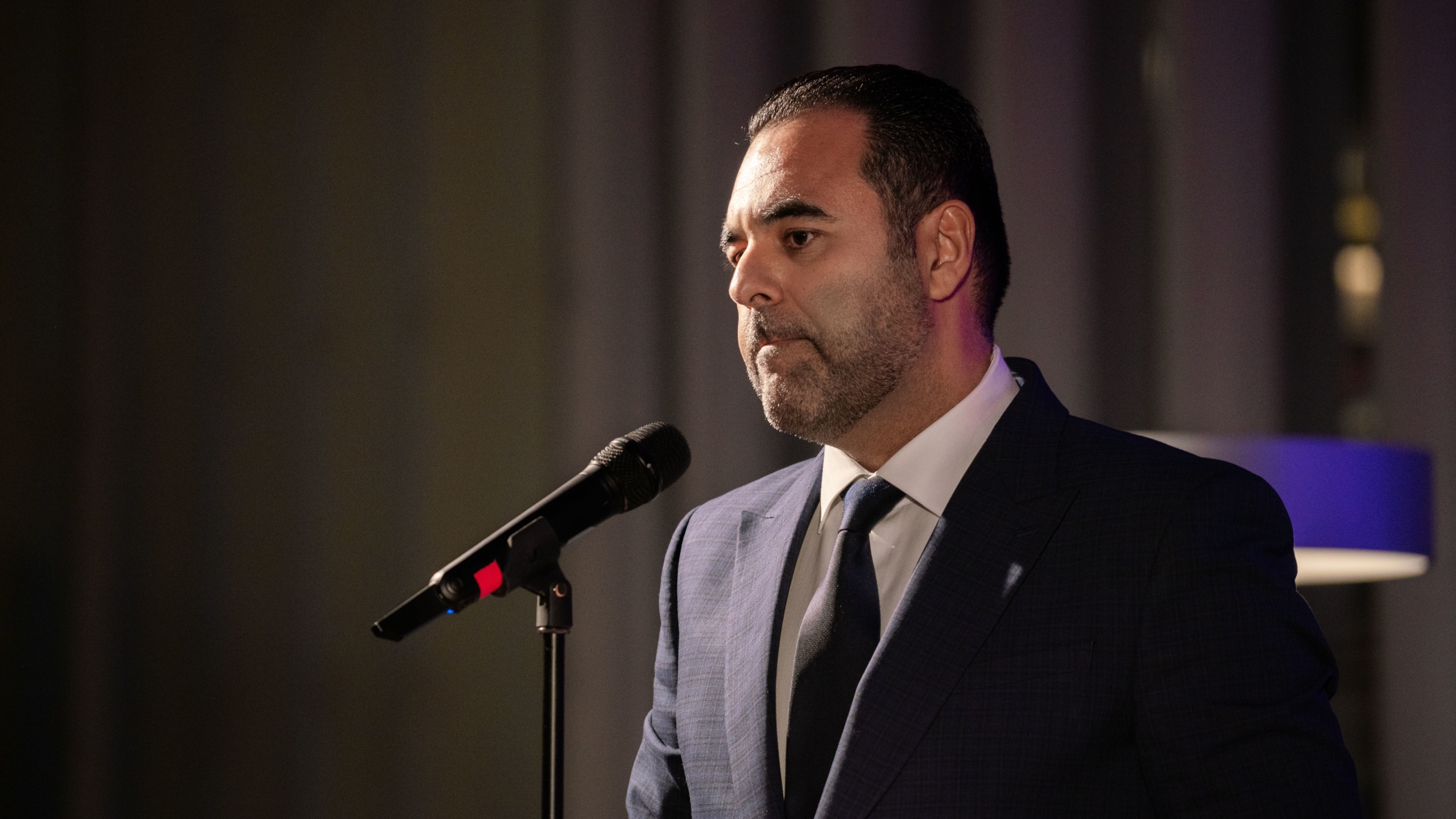
Gharahkhani, Masud, President of the Norwegian Parliament
Freedom, whether academic, press, social, or for women, keeps dwindling in Iran. Reformist groups, especially women, face increased state repression, particularly after the brutal murder of Masha Amini last year. Since then, thousands of protesters have been arbitrarily detained and imprisoned on vague charges. Key opposition figures from the 2022 protest have either been executed, detained, or are facing movement restrictions.
“This is the darkest era of our lives since the 1979 revolution,” said Asieh Amini, a courageous poet, journalist, and women’s rights activist currently living in Norway. “The situation has escalated to an alarming level.”
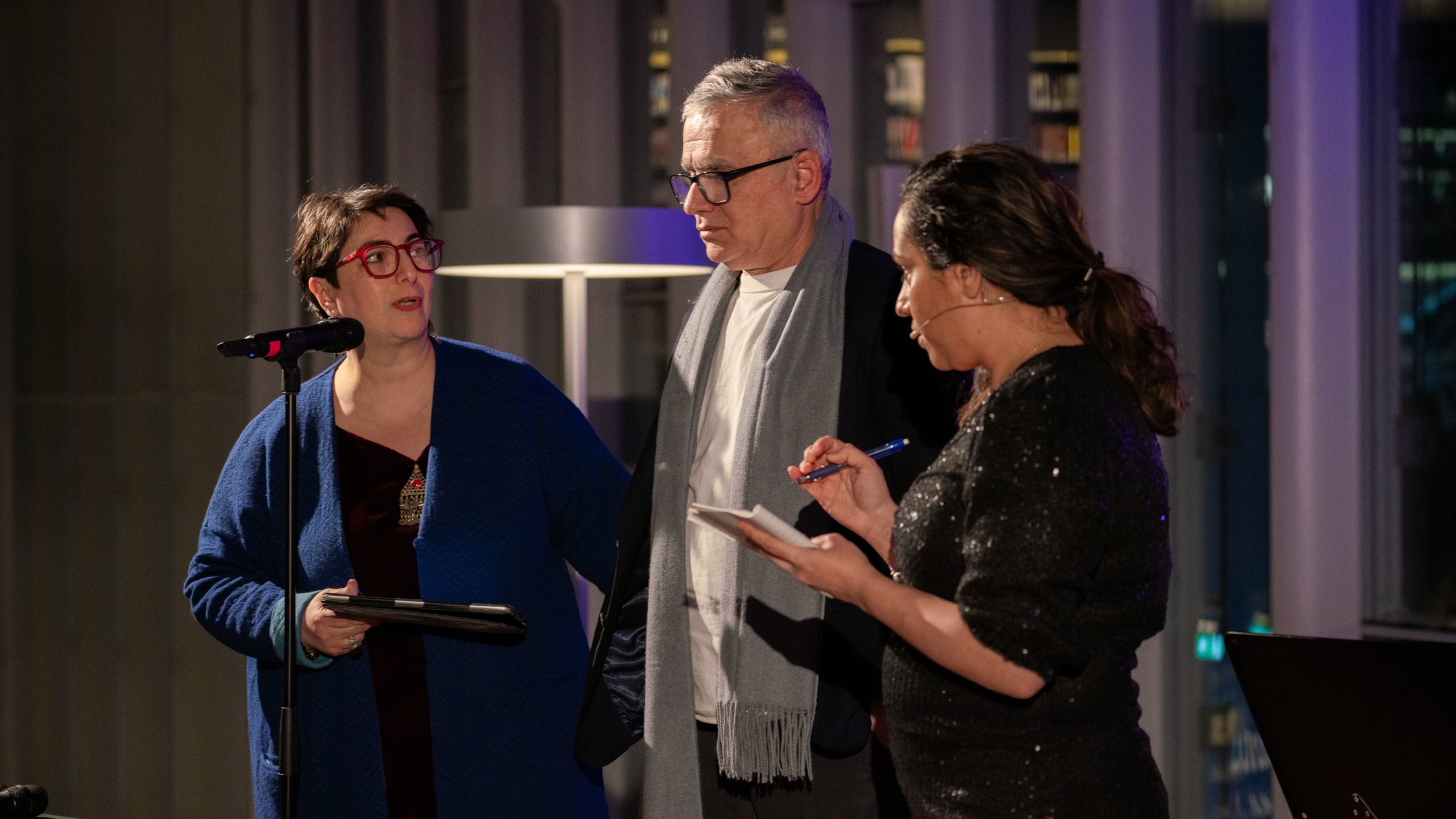
This is the darkest era of our lives since the 1979 revolution,” said Asieh Amini
Through a writers-at-risk program, Amini arrived in Norway in 2010 and became the poet-in-residence at the public library in Trondheim, Norway. She published two poetry books in Trondheim, commenced work on a memoir, and learned Norwegian.
“Every kind of freedom, whether online or offline, academic or press, faces the worst kind of restrictions in Iran. The state tightly controls all sorts of information,” Amini told Norsk PEN.
Amini also spoke about Iran as a complex country, hit hard by multiple challenges and pervasive surveillance. She particularly mentioned a less noticed but alarming aspect—executions occurring “at an alarming rate,” often obscured by tightly controlled information. Amini revealed a shocking statistic, claiming over 500 executions this year alone. Even more concerning, she pointed out, is the regime’s execution of over 70 children and teenagers, a deeply troubling trend.
Human rights groups have expressed similar concerns about a surge in executions in Iran, particularly following the Hamas attack on Israel on October 7. Data from Iran Human Rights (IHR) and the Norway-based organization Hengaw reveal a disturbing trend, indicating that the Iranian regime has executed over 127 people, including women and children. Various reports asserted that Iran has been using the Gaza conflict as cover for the executions as there has been little international attention on the human rights situation in Iran.
The report also highlighted that the ethnic Baluch minority, predominantly Sunni Muslims, has been disproportionately targeted, constituting nearly one-third of all executions.
Amini fears the actual number of execution even could be higher, but due to strict control and heavy surveillance, obtaining accurate statistics on executions is often difficult. A vocal critic of the death penalty, she researched executions in Iran in 2008, and faced lots of challenges.
Challenges included unnecessary criticizm and personal attacks. She said she was criticized for her work, with some questioning her professionalism, as many told her she was a journalist, not an activist.
In a hostile environment, the line between journalism and activism is often blurred and challenging to differentiate. Amini spoke about additional challenges such as surveillance, fear of attacks, and the risk of being detained or killed. Despite doctors advising her to take rest due to the stress in her life, she remained determined and continued to highlight massive human rights abuses in her native country.
“Human rights is not a job or hobby; it is a responsibility,” she said.
Taghi Rahmani, the husband of Narges Mohammadi, says that speaking about human rights in a country where gender inequality is structured, dissidents face execution, writers and journalists are under strict surveillance, and ethnic and religious minorities are repressed can come at a high cost. Still, he is optimistic events such as the one PEN Norsk organized at Deichman Bjørvika and Narges’s nomination for the Nobel Peace Prize will draw attention to the broader cause of human rights in Iran.
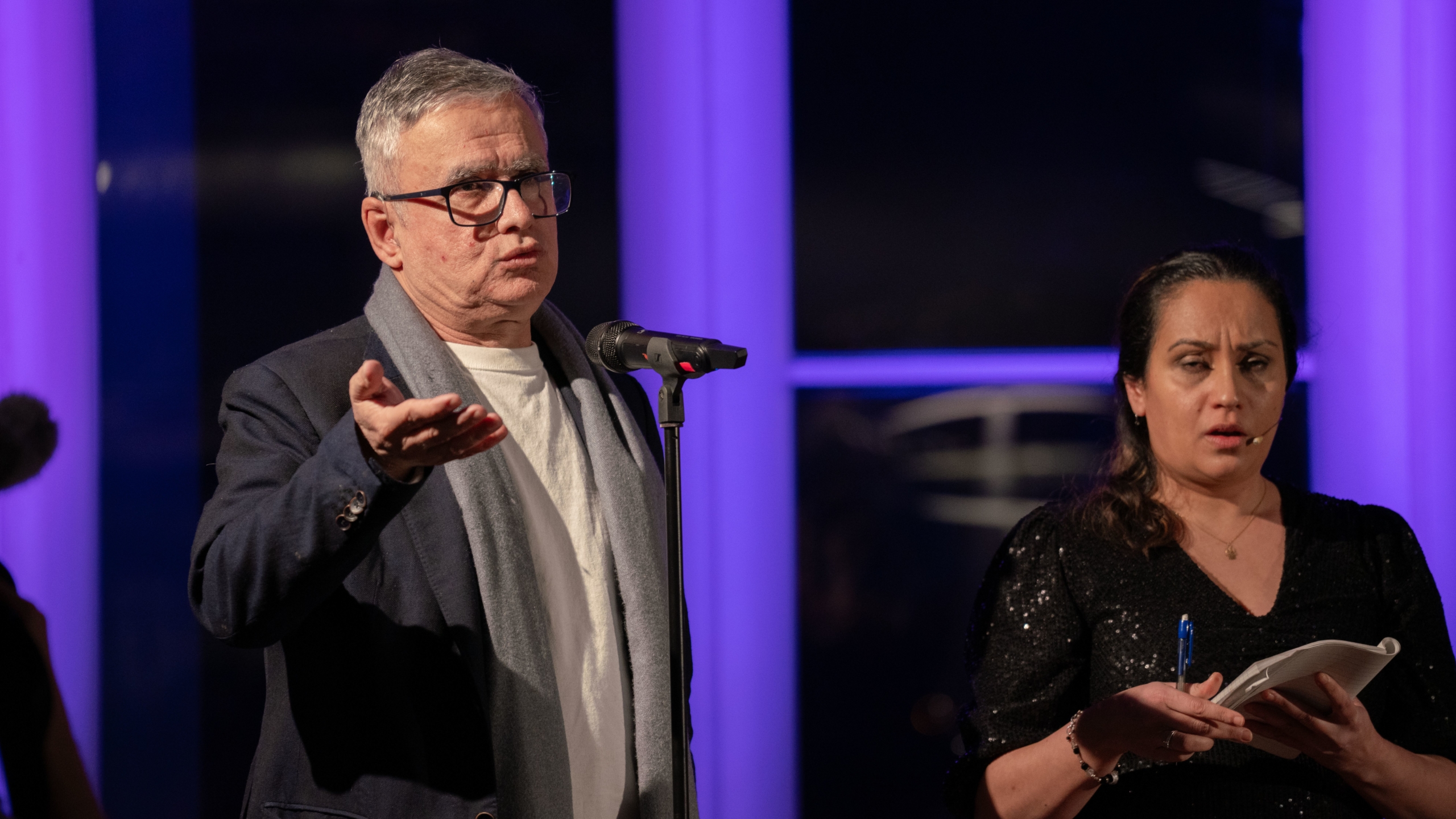
The husband of the incarcerated Iranian Nobel Laureate, Narges Mohammad, delivers a powerful speech to an enthusiastic gathering of activists, writers, journalists, and artists at the vibrant venue of Deichman Bjørvika.
“The regime is trying to kill the people by poverty and various other means. However, the Peace Prize awarded to Narges is a great opportunity for the people of Iran. It encourages Iranian women to openly discuss an apartheid regime where gender equality is systematically structured,” he said.
The event was attended by a large number of civil society activists, poets, and musicians. The atmosphere turned more vibrant with revolutionary lyrics and rebellious poems. PEN Norsk General Secretary Jørgen Watne Frydnes highlighted the significance of civil society, concluding the event by stating, “The larger our number, the greater our strength. Today’s gathering here also signifies the importance of civil society.”
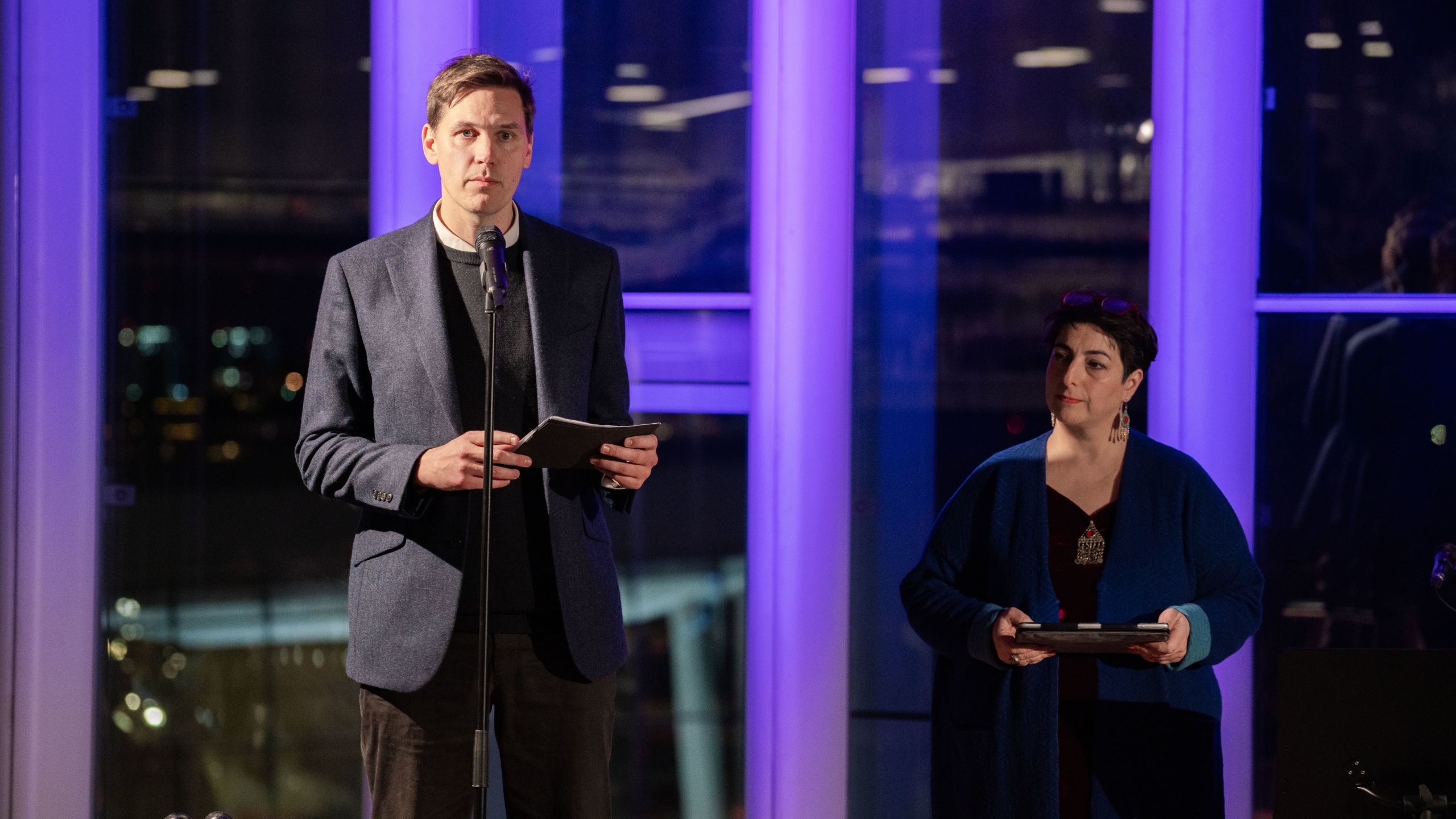
Jørgen Watne Frydnes, the General Secretary of PEN Norsk, addresses the conference participants, which brought together a number of Iranian activists, writers, and the family of Narges Mohammadi.

